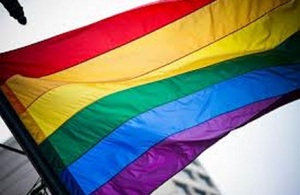International Day against homophobia and transphobia
Lesbian, Gay, Bisexual and Transgender (LGBT) rights remain a key issue in the FCO’s human rights work.

Rainbow flag
Lesbian, Gay, Bisexual and Transgender (LGBT) rights remain a key issue in the FCO’s human rights work. Discrimination against LGBT people continues even in countries where laws exist to protect them, and they regularly suffer persecution and human rights violations because of their sexual orientation or gender identity.
The UK considers human rights to be universal – applying equally to all. The promotion of equality remains crucial to the British Embassy Hanoi’s work, alongside our partners, the Department for International Development and British Council, in Vietnam. We remain committed to promoting the greater recognition of LGBT rights globally.
In Vietnam, five years ago, a social movement for the protection of LGBT rights started and has been gradually developing. This view was shared by Mr Le Quang Binh, the Managing Director, from the NGO Isee who is active in promoting the rights of LGBT people in the country.
Following is Mr Le Quang Binh’s views on LGBT rights in Vietnam:
In 2012, many people were surprised when Vietnam was considering to legalise same-sex marriage. Why did a communist country consider an issue that many Western countries did not? For many foreigners and Vietnamese, a plausible explanation was that the Communist Party brought the issue of same-sex marriage to discussion in order to turn the public’s attention away from the current economic difficulties and social crisis. This interpretation fits with Vietnam’s image in their eyes: a Vietnam which was known for its imprisonment of bloggers, repression of dissent and widespread corruption.
However, people living in Vietnam who monitor the protection of the rights of Lesbian, Gay, Bisexual and Transgender (LGBT) people saw this coming. Five years ago, a social movement for the protection of LGBT rights started and has been gradually developing. The LGBT community overcame their fear and anxiety to develop a strategy to realise their vision that by 2020, Vietnam will legalise same-sex marriage.
At the time the media were considered as the enemy of the LGBT cause, because of their prejudicial news coverage about LGBT. Working with the media through training on homosexuality, prejudice and discrimination was made a top priority. Many journalists, who previously had never met an openly gay person, had a chance to meet and understand that homosexuals are as equal as anyone else. As a result, journalists wrote more positively about homosexuality.
Realising that the media is not so negative, many LGBTs people shared their stories. A number of public events were organised including exhibitions, a drama series ‘be yourself’, Viet Pride and flash mob events. Through these public events and positive media coverage, wider society gained a better understanding about homosexuality and to accept sexual differences.
As the social environment becomes more open, the marriage between two people of the same sex appears more common and receives support from media and the public. Tolerant attitudes and support to the pursuit of happiness became the new standard of the society. Many people and students choose homosexuality or same-sex marriage as topics for their class presentation or final dissertation. Rights-based organisations have also joined the movement to protect the right of LGBT. More importantly, LGBT parents also raise their voices to protect their children by speaking with society, with the media and with government agencies.
The Ministry of Justice (MoJ) has brought same-sex marriage into the political discussion. According to MoJ, “this is a life requirement as there are many LGBT who wish to marry, many LGBT couples separate after living together bring their cases to court for resettlement of common assets/property and to solve many other associated judicial matters. As a consequence, the law must be amended”.
Regardless of some remaining suspicion, the social discussion about homosexuality and same-sex marriage in recent years has contributed to a change in the direction of reducing stigma and increasing rights for LGBT people. This cannot be possible without the role of the LGBT community, the efforts of the Vietnamese civil society organisations and the right decision of MoJ to discuss same sex marriage.